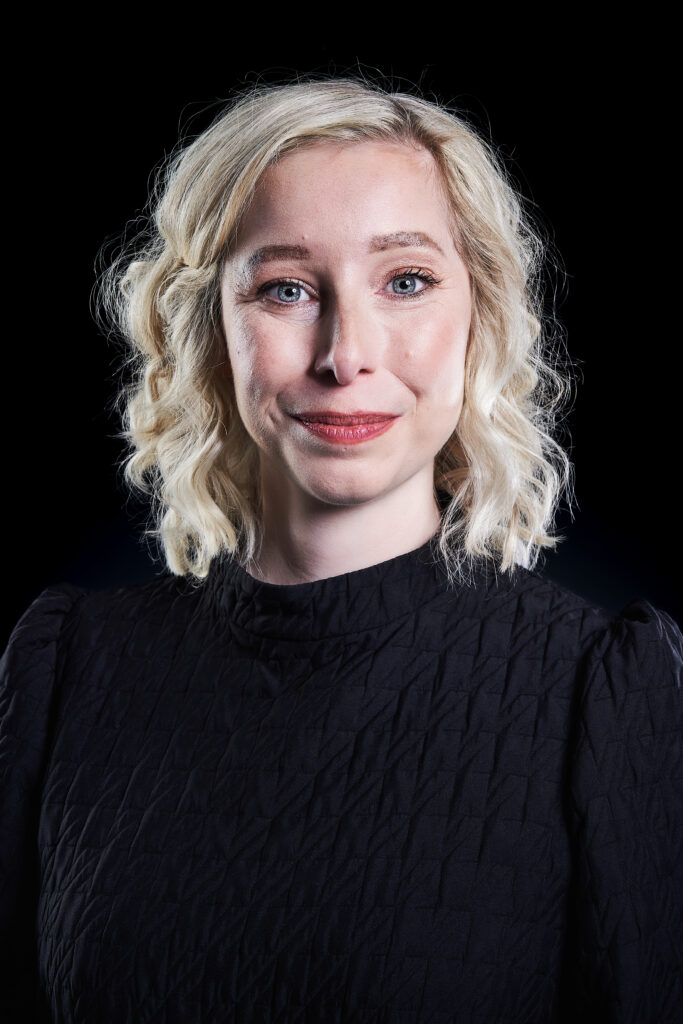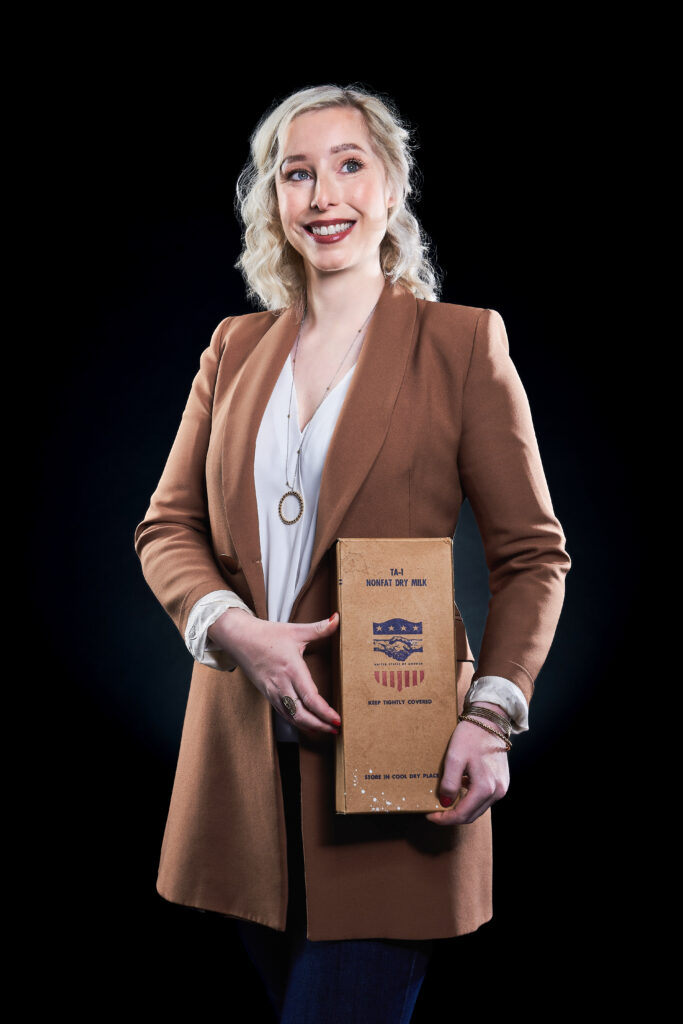„It’s like being a detective“ – a portrait of Elisabeth Piller

„I spent a long time wondering whether people would take me seriously,“ admits Dr. Elisabeth Piller, a historian in the process of transitioning from a junior professorship to a full professorship at the University of Freiburg. „And that certainly has something to do with being a relatively young woman in this environment.“ After completing a Bachelor’s degree in the USA, a Master’s degree in Heidelberg and a doctorate in Norway, Piller has been teaching and researching at the Department of History in Freiburg since the fall of 2020. History is her great passion, and she spends a lot of her (free) time reading archival documents: „My job is the most interesting job in the world. It’s actually like being a detective,“ says Piller, describing her research.
In order to obtain a regular professorship, Piller is writing a second book. This is currently the research work taking up most of her time. The subject of the book will be American famine and foreign aid during and after the Second World War. It will focus on food aid in Germany and other European countries, focusing on examples like the Marshall Plan and how this aid helped the USA rise to become a global superpower. Among other things, Piller’s research highlights the role of women as important historical actors – because what is interesting here is the following: „Especially when you deal with hunger and food supply, you are largely concerned with women, as women were primarily responsible for food supply during and after the war.“ Many of the foreign aid projects that Piller analyzes were also organized by women, such as charity bazaars to raise money: „In this way, women, who historically found themselves mostly on the sidelines of foreign policy debates, were able to make a conscious contribution to the world.“
Although there were already many humanitarian organizations in the 19th century and during the First World War, women often appear only marginally in the literature, according to the historian. Elisabeth Piller emphasizes that the „absolutely vital contribution“ of women in this area of food supply must be recognized. „The questions we need to ask ourselves are: Why didn’t we see these women before? What narratives have led us to leave women out of this story (of humanitarian aid)?“ She also adds that historiography has so far focused almost exclusively on larger aid organizations, which were often led by men. At the same time, research continues to focus primarily on the ‚donors‘ of humanitarian aid, not so much on the recipients. „Recipients, however, are very often women, as they were responsible for the family’s nutritional planning and childcare. That’s why we need to take a much closer look at the role of women.“
Her research work is essential for Piller. At the same time, teaching young historians is also an important part of her work at the university. Elisabeth Piller is convinced that “[i]f you have the historical foundations, you look at the historical and social contexts that have been handed down more critically, often seeing the consequences for your own present. I see the ability to apply this critical attitude to other areas as the main objective of our teaching.“ This means that students can apply the critical attitude they have learned from a specific example in their history seminar in other contexts. Piller believes that history is particularly good at educating enlightened, self-determined citizens.
This critical and enlightened way of thinking certainly includes questioning basic structural issues in society, such as gender stereotypes and the role of women. And that is what Piller does, even more so when it comes to women in science and the hurdles they have to overcome: „Strong structural differences come into play particularly when it comes to whether you have or want to have children. I don’t have any and I don’t have any dependents in need of care either, and that plays a big role“ – because this means Piller has much more time for her research. Although Piller has experienced many positive things in her career – „I’ve actually always had to deal with older professors who, as they say in English, ‚held the door for me so I could go through'“ – she doesn’t want to overlook structural problems. The uncertainty of academic career paths makes family planning and the compatibility of career and family in general very difficult and often hits female academics with children or the desire to have children particularly hard. When asked how this uncertainty could be counteracted, Piller replies that tenure-track professorships are intended to facilitate precisely this – and that, for this very reason, significantly more of them are needed. After all, if you successfully fulfill relatively clearly defined requirements for a period of six years, the junior professorship can be transferred to a permanent professorship. Piller believes that, precisely under these more reliable framework conditions, science is an absolute dream job.

Portrait by Elisa Rijntjes
Elisa Rijntjes is studying Liberal Arts and Sciences at the University College Freiburg. Being half Greek and half Dutch, she grew up trilingual and is passionate about everything related to languages, history and culture. In her Culture and History major, she focuses on these exact subjects with an emphasis on journalism. Outside of university, she dances ballet and plays the piano.